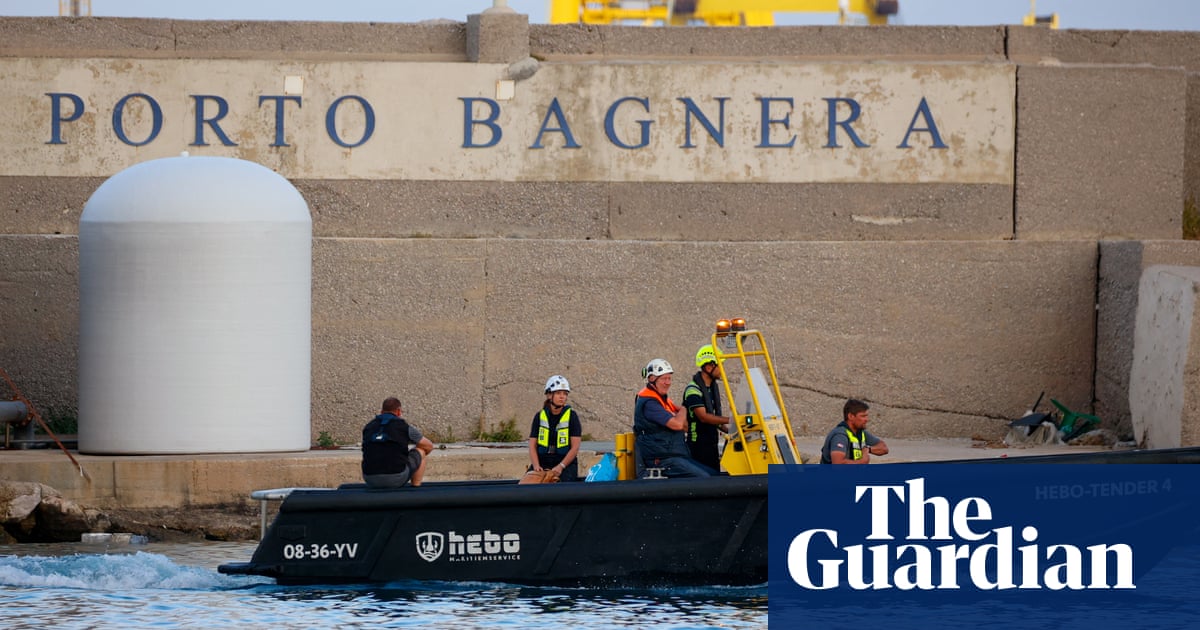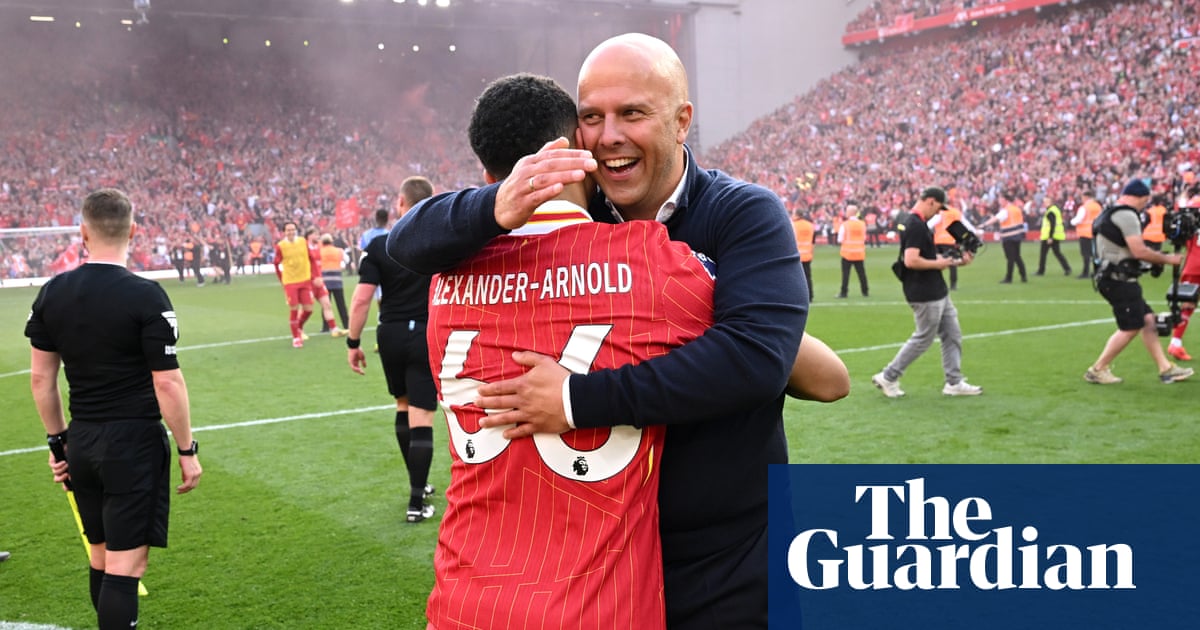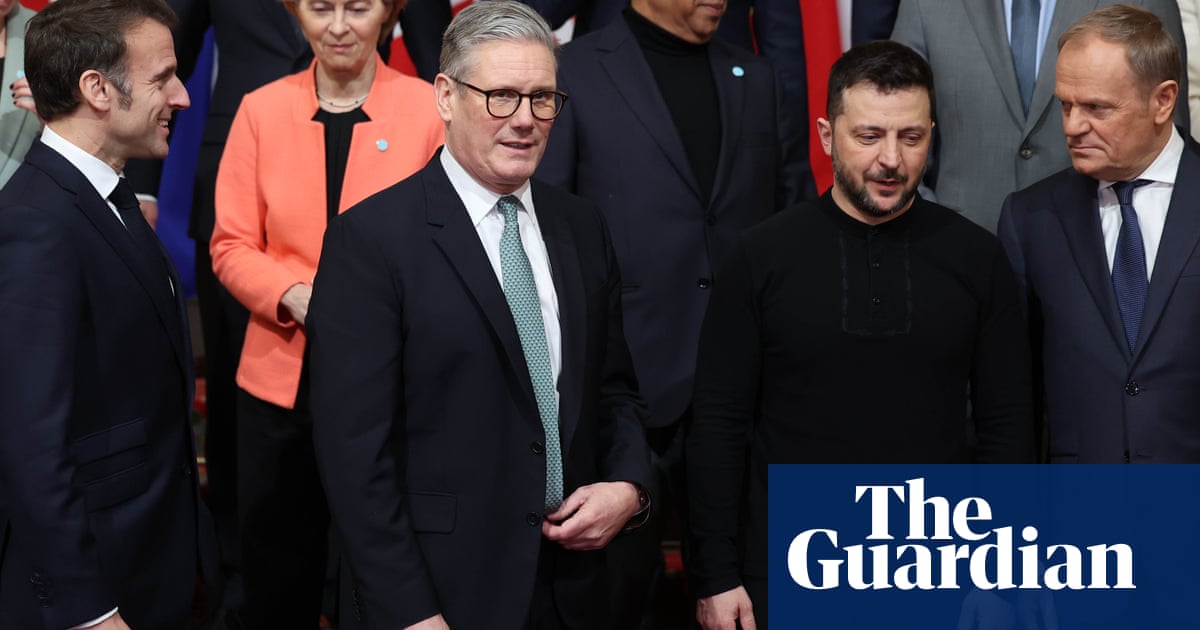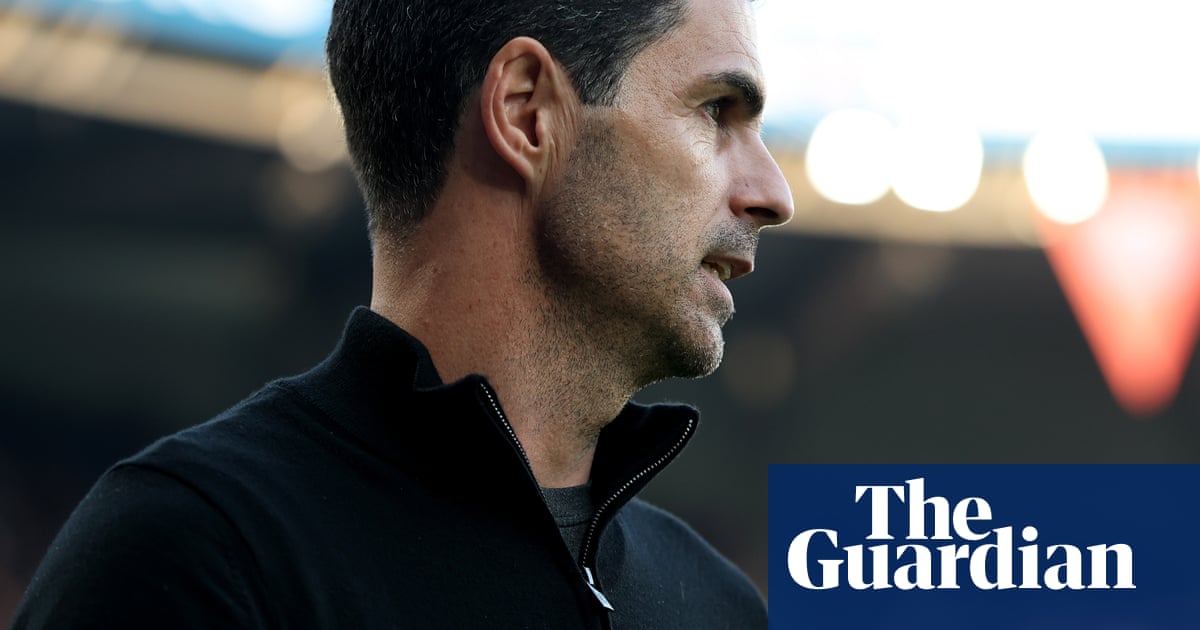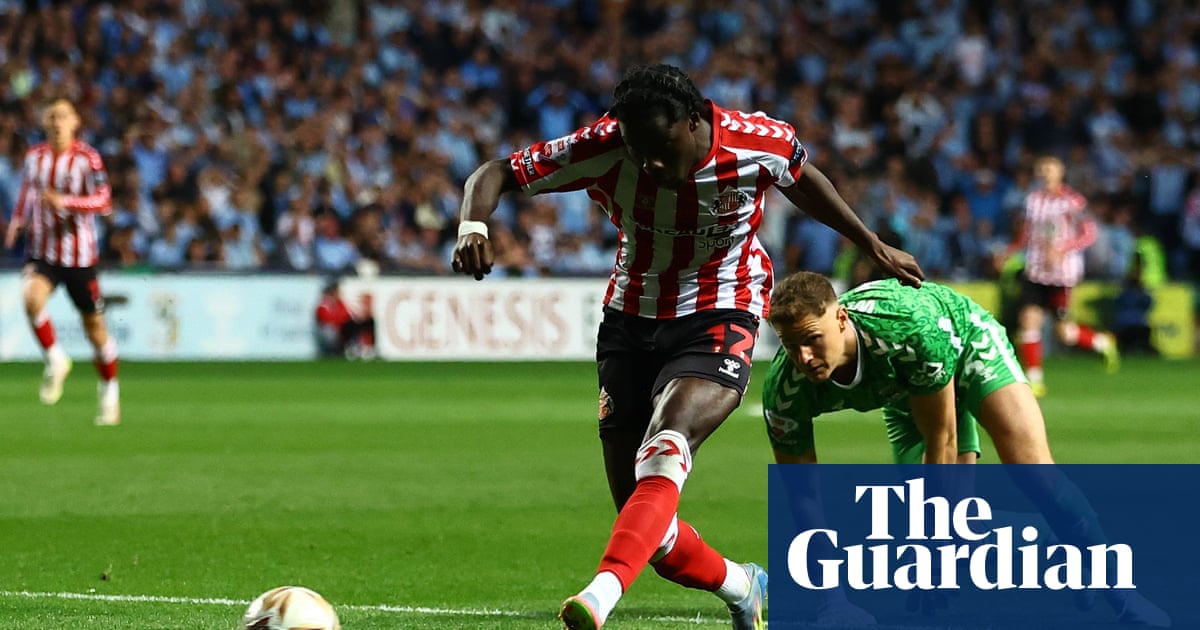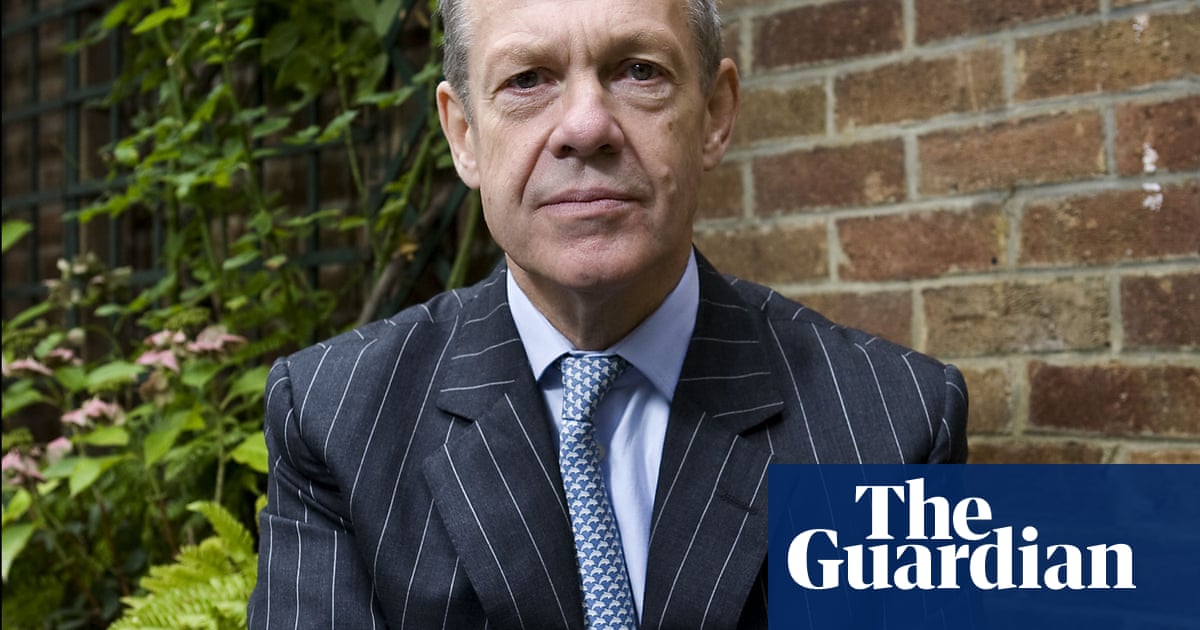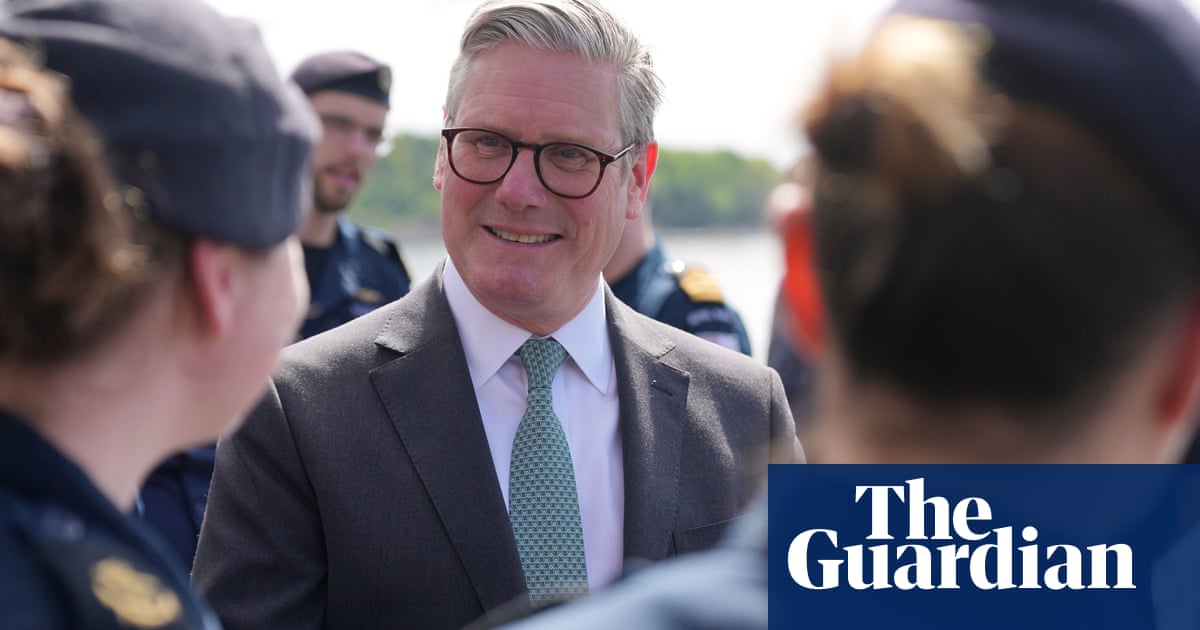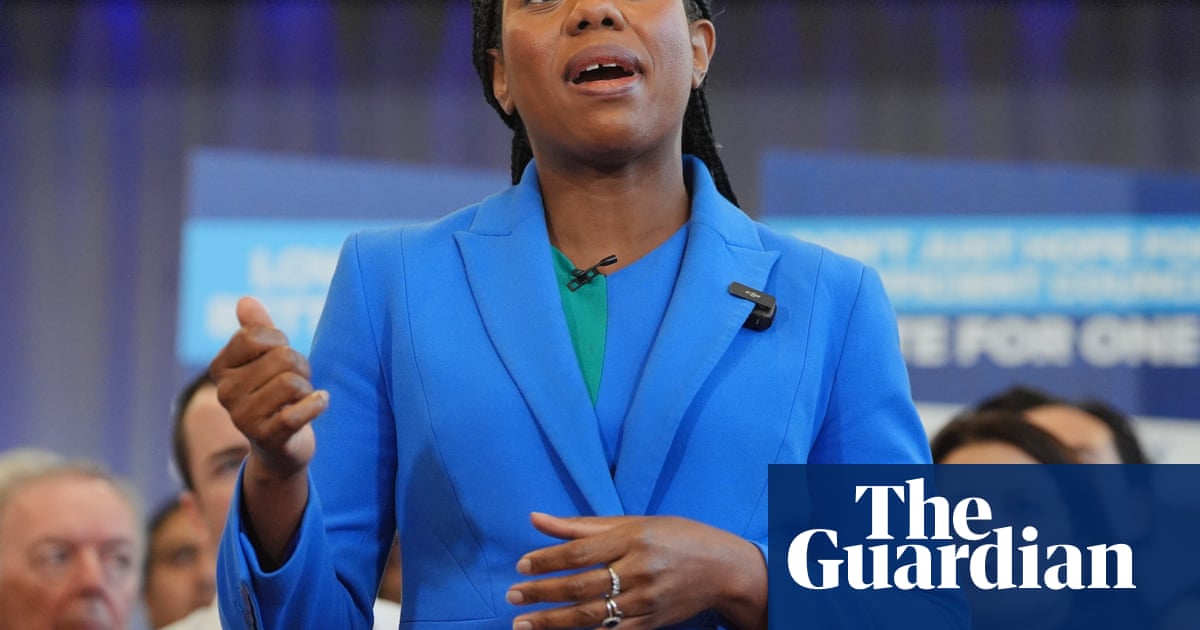Donald Trump wanted Thursday, like every day, to be all about him. He thought the news cycle would be dominated by his sealing of the first US trade deal since he blew a hole in the world economy with the dynamite of tariffs. He gathered his vice-president and several cabinet members in the Oval Office to announce the new agreement – with the UK, as it happens – only for the gaze of the world to be diverted. All eyes were on Rome, where Trump was upstaged by one of the few global players who can outdo him when it comes to putting on a show.
Don’t think Trump is not simultaneously wondering how he can use that whole white-smoke thing – perhaps to signal his winning of a constitutionally prohibited third term in 2028 – and worrying that Leo XIV is a serious rival for the commodity he craves more than any other: attention. There now lives an American with more global followers than he has, and it happened in an instant.
None of this will concern the other party to the outline agreement unveiled in the White House. For Keir Starmer, this is a welcome fillip. A week ago, he was reeling from sweeping electoral losses to Nigel Farage’s Reform UK party. Seven days later, he can toast trade deals with both the US and India, as well as a timely gift from the Bank of England, in the form of a cut in interest rates.
The mere fact of getting those agreements done is an achievement. Griping from the Conservatives and their press allies is laughable: this was precisely the prize the Brexiters promised, sought and failed to deliver. Had a Tory prime minister pulled it off, they would be hailing it as the dawn of a new golden age.
Even the nature of the agreement can be cast as a win for Starmer – and yet more proof that Trump, the self-proclaimed maestro of the deal, is, in fact, a terrible negotiator. Panicked by the crisis his tariffs have created – pushing up prices, slowing the US economy and alarming the stock and bond markets – the US president has been craving anything that can be cast as a breakthrough. As Paul Ashworth, economist for Capital Economics, wrote in a note to investors: “This rush to demonstrate progress on ‘deals’ reveals a rising desperation within the administration to roll back tariffs before they hit GDP growth and inflation.”
The result is that Trump ceded to Starmer most of what Britain wanted, while accepting the mere promise of later discussion on the things the US sought in return. Duties on Range Rovers and Aston Martins sold to the US will now fall from 27.5% to 10%, while levies on imported British steel fall to zero. Yes, UK barriers to US beef and ethanol imports are lowered, but Trump’s bigger demands – above all, for a cut in the digital service tax that Britain slaps on the US tech giants – have been kicked into the long grass of potentially endless negotiation. The UK gets the gain now, with the pain delayed. For the US, it’s not far off the other way around.
What’s more, Starmer held to his red line on food imports. Any wobbling on that could have doubly cost him, first by angering UK consumers with the prospect of supermarket shelves brimming with US chlorinated chicken and, second, by jeopardising the trade in food with the EU. Even after this deal with Trump, the UK and EU markets remain compatible.
All told, along with the agreement struck with India, the week could almost be a showcase for Starmerism: the steady, unflashy grinding out of incremental progress. It may not be the buccaneering, globe-bestriding future promised by Boris Johnson and the leave crowd. That was always a delusion. But it’s something, and a demonstration of what the Europe minister, Nick Thomas-Symonds, calls the “ruthless pragmatism” that may well define Starmer.
Even so, we should not get carried away. As Ashworth advised his clients: “The ‘full and comprehensive’ trade deal between the US and the UK announced in a rush today ... is no such thing.” Trade expert David Henig says that the stats Trump trumpeted on Thursday were “mostly invented” and that the likely gains for the UK will be “microscopic”, compared with the 4% of GDP lost through Brexit. To state the obvious, getting a tariff down to 10% still leaves in place a tariff that was not there a matter of weeks ago. Henig gives credit to the government for getting something across the line, noting that Starmer has secured for Britain terms as good as anyone else has got. But, he told me, what has been done is essentially a “nothing burger”, with “incredibly modest” benefits.
And a reminder: this is Donald Trump we’re talking about. There is no guarantee he will stick to this framework of an agreement, any more than he keeps his word on anything else. Trump has spoken warmly of the art of renegotiation. That prospect is especially tempting when the party across the table seems happy: if they feel like winners, in his mind that makes him a loser. Not for nothing do plenty of trade analysts counsel that the UK’s best hope now is that Trump’s focus shifts to other countries, with phase two of US-UK talks indefinitely postponed.
Here it’s instructive to learn the lesson of the major US universities, on whom Trump has declared war, slashing their funding and seeking to control their teaching. Facing the loss of $400m, Columbia tried to be emollient and accommodate Trump’s demands. He just came back for more.
Harvard took a different approach, refusing to accept government intrusion and suing the administration over threats to its funding. Within hours, more than 150 other colleges joined together to denounce Trump, uniting to prevent an “unprecedented” attack on their independence. Before long, the White House was spluttering that the list of demands issued to Harvard had been sent by mistake.
These, then, are the two strategies available when the Trump juggernaut comes for you. You can seek to cut a separate deal, to protect yourself, as Columbia tried to do. Or you can stand together with all those similarly under attack, seeking to repel the entire Trump offensive, which is what happened after Harvard made its move. So far it is collective action that has got the best results.
Applied to world trade, that would mean a shift away from the every-man-for-himself approach that led to Thursday’s handshakes in the Oval Office, and towards a combined endeavour in which the UK joins forces with, say, Canada and Australia and, obviously, its nearest and biggest trading partner, the EU, to oppose Trump and his prosperity-destroying, self-harming tariffs. More Harvard, less Columbia.
Now, clearly, Starmer’s duty is to protect Britain from a US currently wrecking the global trading system. He took a step in that direction this week. But the greater, more lasting protection will surely come only when the free nations of the world don’t merely try to save their own skins, but instead come together to resist an American president bent on destroying so much that we all value – and not only on trade. Who knows, there may even be another American leader anointed this very week who would give such an effort his blessing.
-
Jonathan Freedland is a Guardian columnist

.png) 8 hours ago
4
8 hours ago
4



